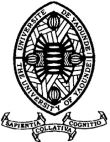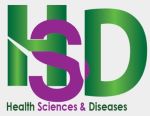Prevalence of Gastrointestinal Toxicity in Patients Receiving Platinum-Based Chemotherapy at Douala General Hospital
Prévalence de la Toxicité Gastro-Intestinale chez les Patients Recevant une Chimiothérapie à Base de Platine à l'Hôpital Général de Douala
DOI:
https://doi.org/10.5281/hra.v2i5.5654Keywords:
Platins, chemotherapy, prevalence, gastrointestinal, toxicityAbstract
ABSTRACT
Background. The purpose of this study was to determine the prevalence of gastrointestinal toxicity in platinum-based chemotherapy and assess factors associated to it in Douala General Hospital. Methodology. It was a hospital based descriptive and analytic study carried out in 4 months from January to April 2017. Convenience sampling was used, demographic data and of the occurrence of gastrointestinal toxicity was investigated in patients on any platinum-based chemotherapeutic regimen. Results: Out of 100 patients studied, 74% were females and 26% were males with a mean age of 48.9 years. The prevalence of platinum-based chemotherapy induced gastrointestinal toxicity was 91%. The most frequent clinical manifestations were anorexia (79%), nausea/vomiting (73%), taste change (54%), diarrhoea (46%), bloating (23%), constipation (21%), belching (20%) flatulence (20%) and mucositis (18%). Most patients (97.4%) had less than grade 3 toxicity severity for clinical manifestations in general and only nausea/vomiting (1%) and diarrhoea (4%) were life threatening (grade 4 severity). Cisplatin was found to be more emetogenic and to cause more anorexia than the other platins while carboplatin was found to cause more rectal burning. Being at least 40 years old, being on chemotherapy alone compared with concurrent chemoradiation, being on a cisplatinum-based regimen and having received at least 3 cycles of chemotherapy were significantly associated with the occurrence of GI toxicities. Conclusion. Gastrointestinal toxicity following platinum-based chemotherapy is very common with many clinical manifestations that can be life threatening. Toxicity is associated to clinical factors. A more in-depth study is recommended.
RÉSUMÉ
Contexte. L'objectif de cette étude était de déterminer la prévalence de la toxicité gastro-intestinale de la chimiothérapie à base de platine et d'évaluer les facteurs qui y sont associés à l'hôpital général de Douala. Méthodologie. Il s'agissait d'une étude descriptive et analytique en milieu hospitalier réalisée en 4 mois de janvier à avril 2017. L'échantillonnage de convenance a été utilisé, les données démographiques et de la survenue de la toxicité gastro-intestinale ont été recherchées chez les patients sous tout régime chimiothérapeutique à base de platine. Résultats : Sur les 100 patients étudiés, 74% étaient des femmes et 26% des hommes avec un âge moyen de 48,9 ans. La prévalence de la toxicité gastro-intestinale induite par la chimiothérapie à base de platine était de 91 %. Les manifestations cliniques les plus fréquentes étaient l'anorexie (79%), les nausées/vomissements (73%), le changement de goût (54%), la diarrhée (46%), les ballonnements (23%), la constipation (21%), les éructations (20%), les flatulences (20%) et la mucosite (18%). La plupart des patients (97,4 %) ont présenté des manifestations cliniques d'une gravité inférieure au grade 3 et seuls les nausées/vomissements (1 %) et la diarrhée (4 %) ont mis leur vie en danger (gravité de grade 4). Le cisplatine s'est avéré plus émétisant et plus anorexique que les autres platines, tandis que le carboplatine a provoqué davantage de brûlures rectales. Le fait d'être âgé d'au moins 40 ans, d'être sous chimiothérapie seule par rapport à une chimioradiothérapie concomitante, d'être sous un régime à base de cisplatine et d'avoir reçu au moins 3 cycles de chimiothérapie était significativement associé à la survenue de toxicités gastro-intestinales. Conclusion. La toxicité gastro-intestinale après une chimiothérapie à base de platine est très fréquente et s'accompagne de nombreuses manifestations cliniques qui peuvent mettre en jeu le pronostic vital. La toxicité est associée à des facteurs cliniques. Une étude plus approfondie est recommandée.
References
Remesh A. Toxicities of anticancer drugs and its management. Int. J. Basic Clin. Pharmacol. 2012;1:2.
Boussios S, Pentheroudakis G, Katsanos K, Pavlidis N. Systemic treatment-induced gastrointestinal toxicity: incidence, clinical presentation and management. Ann. Gastroenterol. 2012;25:106–18.
Andreyev HJN, Davidson SE, Gillespie C, Allum WH, Swarbrick E. Practice guidance on the management of acute and chronic gastrointestinal problems arising as a result of treatment for cancer. Gut. 2012;61:179–92.
Cherwin C, Kwekkeboom K. Prevalence, Duration, Severity, and Distress of Chemotherapy-Related Gastrointestinal Symptoms in Patients With a Hematologic Malignancy. Oncol. Nurs. Forum. 2016;43:561–71.
Cherwin CH. Gastrointestinal Symptom Representation in Cancer Symptom Clusters: A Synthesis of the Literature. Oncol. Nurs. Forum. 2012;39:157–65.
Hang Z, Cooper MA, Ziora ZM. Platinum-based anticancer drugs encapsulated liposome and polymeric micelle formulation in clinical trials. Biochem. Compd. 2016;4:1.
Stojanovska V, Sakkal S, Nurgali K. Platinum-based chemotherapy: gastrointestinal immunomodulation and enteric nervous system toxicity. Am. J. Physiol. - Gastrointest. Liver Physiol. 2015;308:G223–32.
National Cancer Control Institute. Cancer Therapy evaluation Programme. Common Toxicity Criteria Manual. [online]. 1999.[cited Aug 05, 2023]. Availablefrom:https://ctep.cancer.gov/protocoldevelopment/electronic_applic
ations/docs/ctcmanual_v4_10-4-99.pdf [Internet]
Astolfi L. Correlation of adverse effects of cisplatin administration in patients affected by solid tumours: A retrospective evaluation. Oncol. Rep. 2013;29:1285–92.
Jean-Louis Cazin, , Pierre Faure, , Jean-François Latour, , Isabelle Madelaine, Jacques Robert. Évaluation thérapeutique Médicaments utilisés en cancérologie (4 ème édition). Publ. Bimest. 2001 XXII 1-2. :416.
Davis MP, Dreicer R, Walsh D, Lagman R, LeGrand SB. Appetite and Cancer-Associated Anorexia: A Review. J. Clin. Oncol. 2004;22:1510–7.
Pirri C, Katris P, Trotter J, Bayliss E, Bennett R, Drummond P. Risk factors at pretreatment predicting treatment-induced nausea and vomiting in Australian cancer patients: a prospective, longitudinal, observational study. Support. Care Cancer. 2011;19:1549–63.
Bernhardson B-M, Tishelman C, Rutqvist LE. Self-reported taste and smell changes during cancer chemotherapy. Support. Care Cancer. 2008;16:275–83.
IJpma I, Timmermans ER, Renken RJ, Ter Horst GJ, Reyners AKL. Metallic Taste in Cancer Patients Treated with Systemic Therapy: A Questionnaire-based Study. Nutr. Cancer. 2017;69:140–5.
Zabernigg A, Gamper E-M, Giesinger JM, Rumpold G, Kemmler G, Gattringer K, et al. Taste Alterations in Cancer Patients Receiving Chemotherapy: A Neglected Side Effect? The Oncologist. 2010;15:913–20.
Kiran Devisetty, Loren K. Mell, Joseph K. Salama, David A. Schomas, Robert. C. Miller, Ashesh B. Jani, et al. A multi-institutional acute gastrointestinal toxicity analysis of anal cancer patients treated with concurrent intensity-modulated radiation therapy (IMRT) and chemotherapy. Radiother. Oncol. J. Eur. Soc. Ther. Radiol. Oncol. 2009;93:298–301.
De Jongh FE, van Veen RN, Veltman SJ, de Wit R, van der Burg MEL, van den Bent MJ, et al. Weekly high-dose cisplatin is a feasible treatment option: analysis on prognostic factors for toxicity in 400 patients. Br. J. Cancer. 2003;88:1199–206.
Philip Kuebler J, Colangelo L, O’Connell MJ, Smith RE, Yothers G, Begovic M, et al. Severe enteropathy among patients with stage II/III colon cancer treated on a randomized trial of bolus 5-fluorouracil/leucovorin plus or minus oxaliplatin: A prospective analysis. Cancer. 2007;110:1945–50
Eskinder Ayalew Sisay1, Ephrem Engidawork2, Teshager Aklilu Yesuf1 and Ezra Belay Ketema. Drug Related Problems in Chemotherapy of Cancer Patients. J Cancer Sci Ther 2015; 7:2
Bouganim N, Dranitsaris G, Hopkins S, Vandermeer L, Godbout L, Dent S, et al. Prospective validation of risk prediction indexes for acute and delayed chemotherapy-induced nausea and vomiting. Curr. Oncol. [Internet]. 2012 [cited 2017 Feb 13];19. Available from: http://www.current-oncology.com/index.php/oncology/article/view/1074
Jordan K, Jahn F, Aapro M. Recent developments in the prevention of chemotherapy-induced nausea and vomiting (CINV): a comprehensive review. Ann. Oncol. 2015;26:1081–90.
Hawkins R, Grunberg S. Chemotherapy-Induced Nausea and Vomiting: Challenges and Opportunities for Improved Patient Outcomes. Clin. J. Oncol. Nurs. 2009;13:54–64.
Downloads
Published
How to Cite
Issue
Section
License
Authors who publish with this journal agree to the following terms:
- Authors retain copyright and grant the journal right of first publication with the work simultaneously licensed under a Creative Commons Attribution License CC BY-NC-ND 4.0 that allows others to share the work with an acknowledgement of the work's authorship and initial publication in this journal.
- Authors are able to enter into separate, additional contractual arrangements for the non-exclusive distribution of the journal's published version of the work (e.g., post it to an institutional repository or publish it in a book), with an acknowledgement of its initial publication in this journal.
- Authors are permitted and encouraged to post their work online (e.g., in institutional repositories or on their website) prior to and during the submission process, as it can lead to productive exchanges, as well as earlier and greater citation of published work










